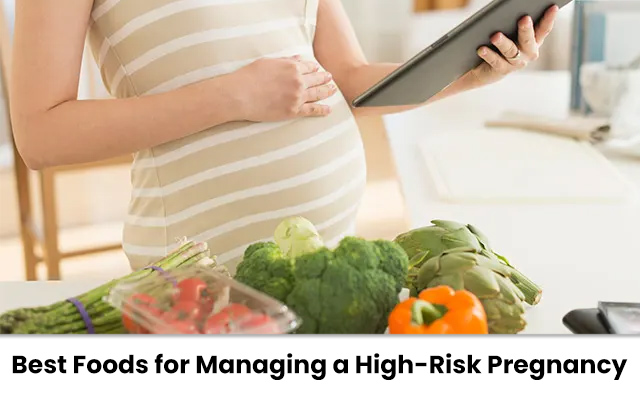Pregnancy is an exciting journey, but if it’s classified as high-risk, you might feel a little overwhelmed. The good news is that eating the right foods can make a big difference. A nutritious diet plays a critical role in risk pregnancy management, ensuring both you and your baby stay healthy. Let’s explore some Indian foods that are safe, nourishing, and perfect for managing a high-risk pregnancy.
Prioritize Protein-Rich Meals
Protein is essential for your baby’s growth and development. Start your day with protein-rich options like moong dal cheela, idli with sambar, or even a bowl of dalia (broken wheat) cooked with vegetables. These are light on the stomach yet packed with nutrients. Adding boiled eggs or a handful of roasted chickpeas to your snacks can further boost your protein intake.
Load Up on Iron-Rich Foods
Iron is crucial for preventing anemia, a common concern in high-risk pregnancies. Indian foods like palak (spinach), beetroot, and methi (fenugreek) are excellent sources of iron. You can make a comforting spinach dal, beetroot sabzi, or methi paratha. To improve iron absorption, pair these dishes with vitamin C-rich foods like lemon juice or oranges.
Boost Calcium for Strong Bones
Your baby needs calcium for bone development, and so do you. Calcium-rich foods like paneer, curd, sesame seeds, and ragi (finger millet) are great choices. A delicious bowl of ragi porridge or a simple paneer bhurji with roti can meet your calcium needs. Don’t forget curd rice—it’s light, cooling, and a complete meal in itself.
Whole Grains for Sustained Energy
Whole grains provide long-lasting energy and keep you full for longer. Opt for brown rice, jowar (sorghum), bajra (pearl millet), or oats. A simple dal khichdi made with brown rice or oats upma is both healthy and delicious. Whole grains also contain fiber, which helps with digestion and prevents constipation—a common issue during pregnancy.
Healthy Fats for Baby’s Brain Development
Healthy fats are essential for your baby’s brain development. Foods like almonds, walnuts, ghee, and flaxseeds should be part of your diet. You can add flaxseed powder to your atta (wheat flour) or sprinkle it over curd. A teaspoon of ghee with dal-chawal is not just tasty but beneficial too—when consumed in moderation.
Stay Hydrated with Healthy Drinks
Hydration is just as important as eating the right foods. Coconut water is an excellent option for replenishing electrolytes. You can also sip on fresh juices like pomegranate, mosambi (sweet lime), or carrot-beetroot juice. Avoid sugary drinks and opt for natural sources instead.
Tips for Effective Risk Pregnancy Management
- Eat smaller, frequent meals to avoid indigestion or nausea.
- Minimize spicy and oily foods that can trigger acidity.
- Always consult your doctor before introducing new foods to your diet.
By incorporating these foods into your diet, you can make significant progress in your journey of risk pregnancy management. A balanced, nutrient-rich diet combined with regular medical care ensures a safe and healthy pregnancy journey. If you need more guidance, consult the best high-risk pregnancy doctor in Kolkata for personalized advice!

